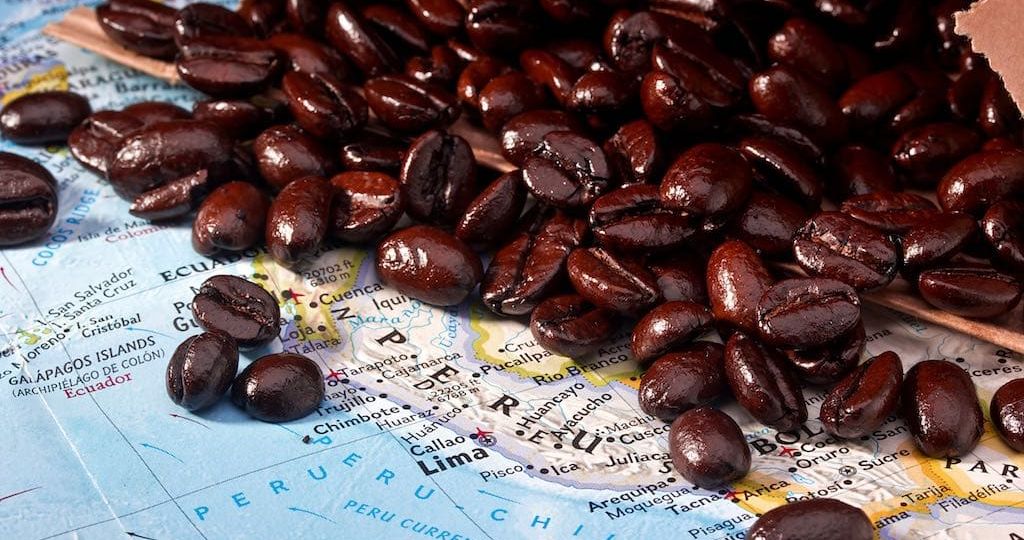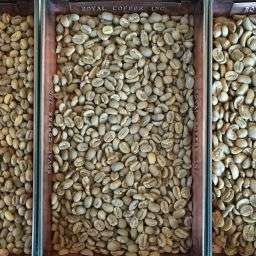
Peruvian coffee is celebrated for its unique flavor profiles and organic cultivation methods. Nestled within South America, Peru’s diverse landscapes provide the perfect conditions for growing high-quality Arabica beans, renowned for their distinct taste. Organic farming practices are a cornerstone of Peruvian coffee cultivation, emphasizing the absence of chemical pesticides or fertilizers, ensuring every cup is not only delightful but also eco-friendly.
Historical Background and Global Importance
Coffee cultivation in Peru has a rich history that dates back centuries, with the country now recognized as a significant player in the global coffee market. Initially overshadowed by more prominent coffee-producing nations, Peru has carved out a niche for itself, primarily due to its high-quality Arabica coffee beans.
These beans are prized for their unique flavor characteristics, bolstered by Peru’s commitment to organic and sustainable farming practices. As a result, Peru has risen to prominence, contributing significantly to the global coffee culture with its premium beans.
Regions Producing Coffee in Peru
Overview of Main Coffee-Growing Regions
Peru’s coffee-growing regions are as diverse as its landscape, with Cajamarca, Amazonas, and Cusco leading the charge. Each area offers distinct climatic and geographical conditions conducive to coffee cultivation, enabling the production of beans with unique flavor profiles. The combination of high altitudes, fertile soil, and a suitable climate across these regions ensures the production of superior quality coffee beans.
Characteristics of Each Region
- Cajamarca: Known for its rich, aromatic beans, Cajamarca’s coffee is characterized by its sweet, fruity flavors, a result of the region’s high altitude and favorable climate.
- Amazonas: Offers a bold, robust flavor profile with a hint of citrus, owing to its lush, rainforest environment.
- Cusco: Produces beans that are often described as having a complex flavor profile, including notes of floral and chocolate, thanks to its unique terroir at extreme altitudes.
Types of Beans Grown
Several varietals thrive in Peru’s conducive growing conditions, including but not limited to:
- Caturra: A mutation of the Bourbon variety, known for its bright acidity and medium body.
- Typica: Considered the ‘original’ coffee varietal, offering a sweet, clean cup with moderate acidity.
- Bourbon: Appreciated for its complex acidity and excellent balance of sweetness. Each region’s microclimate and soil conditions play a crucial role in the development of these beans’ distinct flavors, contributing to the rich diversity of Peruvian coffee available on the global market.
Cultivation Practices and Harvesting
Peruvian coffee benefits from shade-grown conditions, hand harvesting, and organic farming practices. The shade-grown method, using the natural canopy of trees, protects coffee plants from direct sunlight, promotes soil health, and supports biodiversity. This approach not only improves the quality of coffee but also aligns with environmentally friendly farming practices.
Hand harvesting ensures that only fully ripe cherries are picked, maintaining the high quality of the beans. Organic farming is prevalent across Peruvian coffee farms, avoiding the use of synthetic pesticides and fertilizers, thereby ensuring the sustainability of cultivation practices and the health of the ecosystem.
Processing Methods
Peruvian coffee utilizes various processing methods, including washed, natural, and honey processes, each contributing to the beans’ unique flavor profiles. The washed process involves removing the cherry and mucilage from the bean before drying, resulting in a clean and bright flavor. Natural processing, where cherries are dried with the bean still inside, imparts a sweeter, fruitier taste.
The honey process, a hybrid method, removes the cherry but leaves some mucilage on the bean during drying, offering a balance between the washed and natural methods with a slightly sweet and complex flavor.
Flavor Profiles and Varietals
Peruvian coffee is known for its wide range of flavor profiles, significantly influenced by the altitude at which it is grown. High-altitude farms often produce beans with mild acidity, medium body, and notes of nuttiness, floral elements, and slight fruitiness. In contrast, beans from lower altitudes exhibit brighter acidity and distinct floral scents, alongside sweet and smooth flavor characteristics.
This diversity in flavor profiles is a testament to the varied terroir of Peru, which provides an ideal environment for cultivating different coffee varietals.
Common Varietals Grown in Peru
- Caturra: This varietal is favored for its bright acidity and significant contribution to the cup’s complexity.
- Typica: Known for its sweet, clean cup and moderate acidity, Typica is a traditional choice in Peru.
- Bourbon: Offers a rich, balanced flavor with a hint of sweetness, making it a popular choice among Peruvian farmers.
Sustainability and Fair Trade
Sustainability and Fair Trade are pivotal aspects of the Peruvian coffee industry. The emphasis on organic certifications ensures that coffee production meets stringent environmental standards, promoting the health of both the land and the communities involved.
Fair Trade practices ensure that farmers receive a fair price for their beans, contributing to economic stability and community development. These certifications not only elevate the standard of living for farmers but also assure consumers of the ethical origins of their coffee, fostering a sustainable future for Peruvian coffee cultivation.
The Peruvian Coffee Industry Today
The Peruvian coffee industry stands at a crossroads between tradition and modernity, facing both challenges and embracing innovations. Climate change poses a significant threat, affecting yield and quality. However, the industry is responding with adaptive farming techniques and a focus on sustainable practices. Innovations include the development of disease-resistant coffee varietals and the implementation of advanced processing methods to enhance flavor profiles.
Despite these challenges, Peru remains committed to producing high-quality, organic coffee, supported by a growing network of small-scale farmers and cooperatives.
Artisanal Coffee Shops and Roasters
Artisanal coffee shops and roasters play a crucial role in promoting Peruvian coffee, both domestically and internationally. These establishments are not only venues for coffee consumption but also centers for education and appreciation of the rich coffee culture of Peru.
By showcasing the diverse range of flavors and qualities of Peruvian beans, they help to elevate the profile of Peruvian coffee worldwide. Moreover, artisanal roasters often engage in direct trade with farmers, ensuring a fair price for their beans and supporting the local economy.
Peruvian Coffee in the Global Market
Peru’s position in the global coffee market is marked by its reputation for producing high-quality, organically grown Arabica beans. The unique flavor profiles, influenced by the country’s diverse climatic zones, make Peruvian coffee highly appealing to international consumers.
With an increasing emphasis on sustainable and fair trade practices, Peru is attracting attention from specialty coffee enthusiasts and ethical consumers alike. The global market’s demand for distinctive, high-quality beans positions Peru as a key player in the specialty coffee segment.
FAQs
What are the best Peruvian coffee brands?
- The best brands are often those that focus on fair trade and organic practices, highlighting the unique qualities of Peruvian beans.
How is Peruvian coffee made?
- It involves meticulous cultivation, hand harvesting, and various processing methods (washed, natural, honey) to enhance its distinct flavor profiles.
What distinguishes the flavor profiles of Peruvian coffee?
- Flavor profiles vary by region, with high-altitude areas producing beans with mild acidity and medium body, while lower altitudes offer brighter acidity and sweet, smooth flavors.
Conclusion
Peruvian coffee beans embody a blend of rich tradition and innovative practices, from their cultivation and processing to their significant role in the global coffee culture. With a commitment to sustainability, organic farming, and fair trade, Peru continues to make a profound impact on the global coffee market. The unique aspects of Peruvian coffee, including its diverse flavor profiles and the dedication of its producers, contribute to its growing reputation among coffee enthusiasts worldwide.









